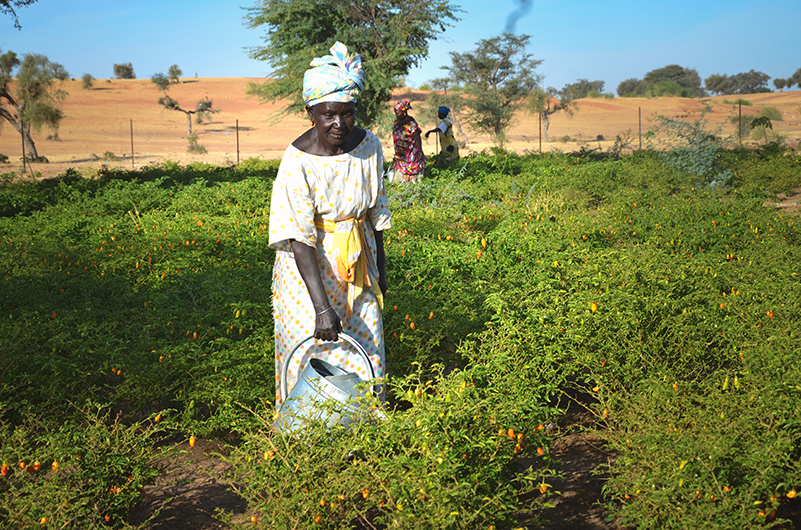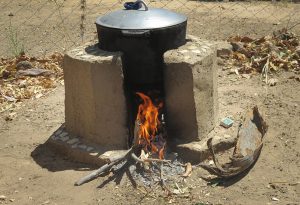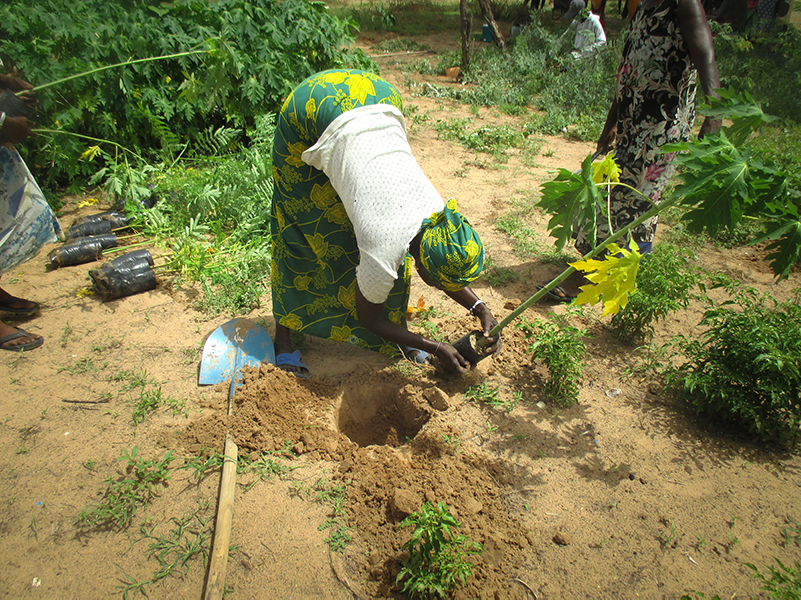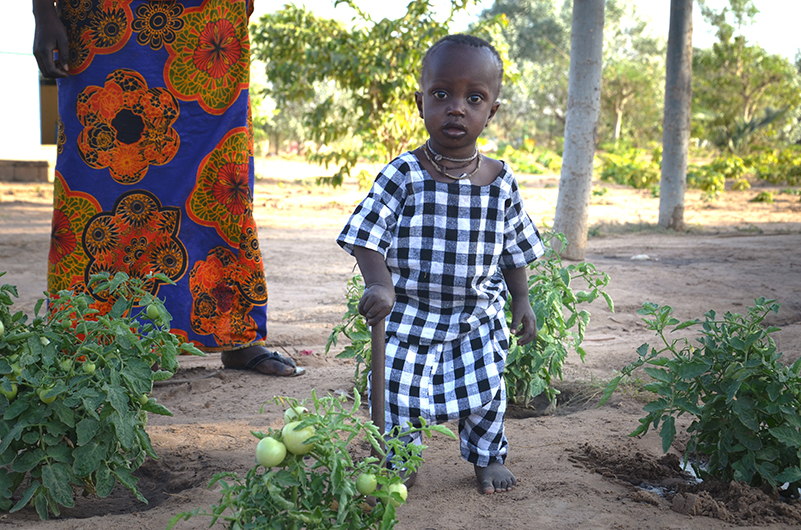How do people know how to protect their gardens from locusts? When is the best time of year to plant navets (turnips)? Or, how to cook the best ceebu jen? Children watch their parents’ daily activities, and in turn, parents teach their children the skills that they know so that when they grow up, they can continue to lead successful, happy lives in the village. Through CREATE!’s sustainability programs, community members develop and utilize skills that they can pass onto future generations so that villages can remain self-sufficient and sustainable.
From Open Fires to Improved Cookstoves
Women in rural Senegal spend most of their day cooking. When they aren’t cooking, they can often be found collecting firewood, carrying out household chores, and looking after their children or even the neighbors’ children. Ndeye Bineta Diop, a mother of six and now, a proud grandmother, grew up in the village of Wereyane. Her mother used a traditional open fire to cook, also known as a “three-stone fire”.
Bineta recalls how she used to spend many hours every day cooking for her family using the three-stone fire just like her mother, and the many generations before her. Open fires like this are dangerous for wandering children and animals. They often cloud the air with smoke and use up many sticks of wood for one meal.

Here we see Bineta watering pepper plants in Wereyane’s community garden. By growing the food that they cook right in their community, women spend less time and money at the weekly distant markets.
However, things changed when Bineta decided to build her own improved cookstoves in her hut. With the training they received from CREATE!’s field technicians, Bineta and her village learned to build their own improved cookstoves from free, natural, and locally available materials. Now she has two cookstoves in her kitchen! She explains that although her daughter-in-law is the one who cooks now, she can still see the difference. “When I used the three stone fire, I spent many hours in the kitchen. But now, it is my daughter-in-law who cooks, and in less than one hour she finishes cooking the lunch.”
 Safer Cooking
Safer Cooking
Bineta’s grandchildren will grow up watching their mother cook on their improved cookstove. It is safer to have the children in the kitchen now since the outer walls of the improved cookstove act as a shelter for the flames. Bineta explains, “Even my children can stay in the kitchen without any inconvenience, there is less smoke, and we don’t run into any danger.”
Sustainable Cooking
Along with eliminating prominent dangers, the improved cookstove saves women time and money since it uses less firewood per meal. To support a traditional fire, Bineta explains how she used to buy wood every week. Now, she says that she and her daughter-in-law only collect a few pieces of wood outside. “The improved cookstove saves wood and money because we don’t need to cut many trees or spend a lot of money on buying wood. The materials are free in the village.” Although Wereyane is located in an especially dry and desolate region of northern Senegal, the community now has access to more trees thanks to their 2018 tree planting campaign.
Reforesting the Community
For the first time, community members of Wereyane decided to participate in a tree planting campaign last rainy season! CREATE! field technicians trained community members with the skills and knowledge they need for successful tree care. They planted trees for fruits, nuts, live-fencing, and firewood in the cooperative garden and around their huts. “People will always use wood for their needs,” Bineta tells us. “So, it is important to plant more trees.”
Tree planting is important now and for the next generation to come. Bineta explains, “Tree planting is very special for the community and they will be important for our children’s future.” Ndank, ndank, step by step, the village of Wereyane is working towards protecting the environment and develop self-sufficiency so that future generations to come can enjoy healthy and happy lives in the community.

Here we see a community member in Wereyane carefully planting a Papaya tree. Papaya trees will be ready for harvest just 6-9 months after being planted.

